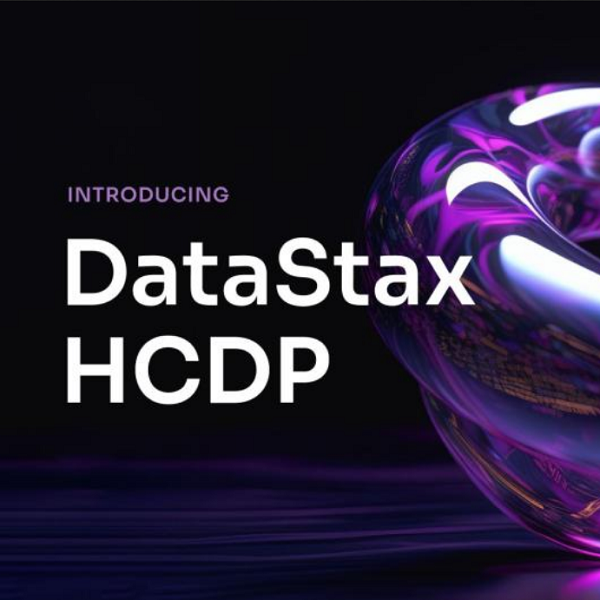
DataStax announces new Hyper-Converged Data Platform giving enterprises the complete modern data centre suite needed for AI in production
DataStax, the Generative AI data company, today announced the upcoming launch of DataStax HCDP (Hyper-Converged Data Platform), in addition to the upcoming release of DataStax Enterprise (DSE) 6.9. Both products will enable customers to add generative AI and vector search capabilities to their self-managed, enterprise data workloads.
DataStax HCDP is the future of self-managed data, designed for modern data centres and Hyper-Converged Infrastructure (HCI) to support the breadth of data workloads and AI systems. It supports the most powerful on-premises enterprise data systems built to AI-enable data and is ideal for enterprise operators and architects who want to take advantage of data centre modernisation investments to reduce operating costs and operational overhead.
HCDP brings OpenSearch and Apache Pulsar for Generative AI RAG Knowledge Retrieval
The combination of OpenSearch’s widely adopted Enterprise Search capabilities, with the high-performance vector search capabilities of the DataStax cloud-native, NoSQL Hyper-Converged Database, will enable users to retrieve data in the most flexible ways possible, catalysing the ability to get RAG and knowledge applications into production.
“With more than 2000 contributors, including upwards of 200 maintainers spanning 19 organisations, OpenSearch has built a vibrant, growing community and is used by companies around the world,” said Mukul Karnik, general manager, Search Services at AWS. “We’ve seen a growing number of companies building AI-powered capabilities using OpenSearch, and RAG workloads in particular can benefit from OpenSearch’s extensive full-text search capabilities. We are excited to have Datastax join the community and offer OpenSearch as part of HCDP, and we look forward to seeing how their customers use it to build a range of new generative AI-powered services and applications.”
Hyper-converged streaming (HCS), built with Apache Pulsar, is designed to provide data communications for a modern infrastructure. With native support of inline data processing and embedding, HCS brings vector data to the edge, allowing for faster response times and enabling event data for better contextual generative AI experiences. With the ability to consolidate workloads from legacy applications, HCS provides application communication modernisation and enables users to operate across multiple cloud environments or between on-premises and cloud to provide a high-performance, scalable data communications layer that simplifies data integration across all environments.
HCDP will provide rapid provisioning and powerful, intuitive data APIs built around the DataStax one-stop GenAI stack for enterprise retrieval-augmented generation (RAG), and it’s all built on the proven, open-source Apache Cassandra® platform.
DataStax 6.9 Brings Generative AI Capabilities to Existing On-premises Data
DataStax Enterprise 6.9 offers enterprise operators and architects with massive on-premises Cassandra and DSE workloads the fastest upgrade to lower total cost of ownership and operational overhead while adding powerful GenAI capabilities to their existing on-premises data. Its vector add-on brings vector search capabilities to both existing DSE and lift-and-shift Cassandra workloads, and the addition of DataStax Mission Control makes the operations of on-premises data workloads dramatically easier with cloud-native operations and observability on Kubernetes.
“We’re looking forward to DSE 6.9 for its advancements in real-time digital banking services. Currently, we use DSE for critical tasks like data offloading and real-time data services. Its full-text search enhances customer engagement without adding to core system loads,” said Marcin Dobosz, director of technology, Neontri. “With features like the Vector Add-On and DataStax Mission Control, DSE 6.9 aligns with our goal of modernising technology stacks for financial institutions, enhancing productivity, search relevance, and operational efficiency to better meet clients’ needs.”
“We’re delivering the future of self-managed data for modern infrastructure and AI systems and enabling enterprises to get the most out of their data centre modernisation and total cost of ownership,” said Ed Anuff, chief product officer, DataStax. “In addition to supporting all of the new HCI investments on the most powerful systems in new AI data and edge clouds, we’re also enabling users to benefit from powerful integrations with leading technologies like OpenSearch and Apache Pulsar.”

